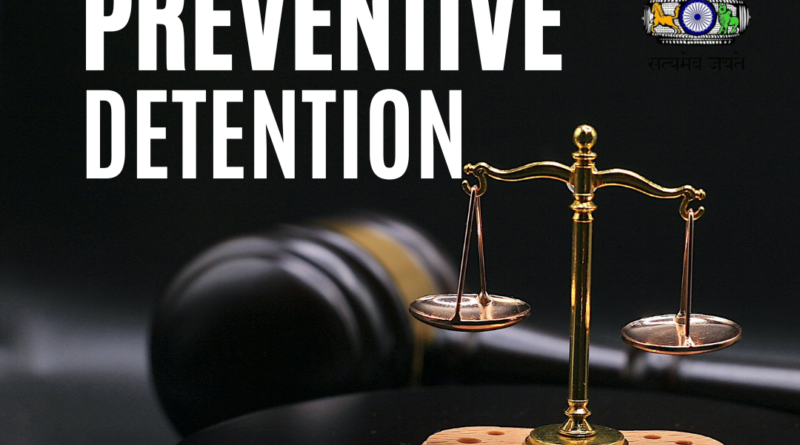About Preventive Detentions In India Ias Banenge
Context:
The Supreme Court observed in a judgment that preventive detention laws in India are a colonial legacy and confer arbitrary power to the state.
Relevance:
GS-II: Polity and Governance (Constitutional Provisions, Fundamental Rights), GS-II: Governance (Government Policies and Interventions)
Dimensions of the Article:
- About Preventive Detention in India
- Criticisms of Preventive detention
- The argument in favour of Preventive detention
- Recent SC Judgement on Preventive Detention
READ MORE- Exercise Cope India 23 | Ias Banenge
About Preventive Detention in India
- As the term suggests – Preventive detention helps to prevent a person from committing a crime.
- Article 22 deals with 2 kinds of detentions:
- Article 22 (3) (b) of the Constitution allows for preventive detention and restriction on personal liberty for reasons of state security and public order.
- According to Article 22 (4)- in case of preventive detention as well, the person being detained should be informed of the grounds of arrest, however, in case the authorities consider that it is against the public interest to disclose certain facts, they need not reveal them.
- The person cannot be detained under preventive detention for more than 3 months unless permission to do so has been granted by an advisory board consisting of 3 judges of the Supreme Court.
- The other way by which the period of detention can be extended beyond 3 months is if the Parliament prescribes a law for it.
- Acts by the Parliament which provide for extension of Preventive detention period beyond 3 months:
- National Security Act (NSA) 1980;
- Conservation of Foreign Exchange and Prevention of Smuggling Activities Act (COFEPOSA) 1974;
- Unlawful Activities Prevention Act (UAPA) 1967, etc.
- Many State legislatures have enacted similar laws that authorize preventive detention.
Criticisms of Preventive detention
- Preventive detention becomes a human rights concern as there have been various incidents of misuse of such laws in India.
- Preventive detention represents the police power of the State.
- No other democratic country mentions preventive detention in its constitution and such laws come into effect only under emergency conditions in democratic countries.
The argument in favour of Preventive detention
- Arbitrary action the State is prevented in India as the areas in the context of which Preventive detention laws can be made are laid down in the 7th Schedule of the Constitution itself.
- In the Union list – laws for Preventive detention can be enacted only for reasons connected with Defence, Foreign Affairs, or the Security of India.
- In the Concurrent list – laws for Preventive detention can be enacted only for reasons connected with Security of a State, the Maintenance of Public Order, or the Maintenance of Essential Supplies and Services.
-Source: The Hindu





Pingback: Editorials/Opinions Analysis For UPSC 17 April 2023 Ias Banenge -
Pingback: Recognising NABARD’s Preeminent Function | Ias Banenge -